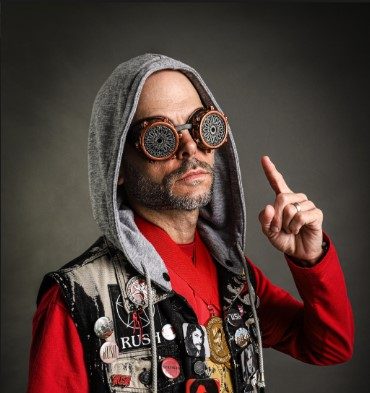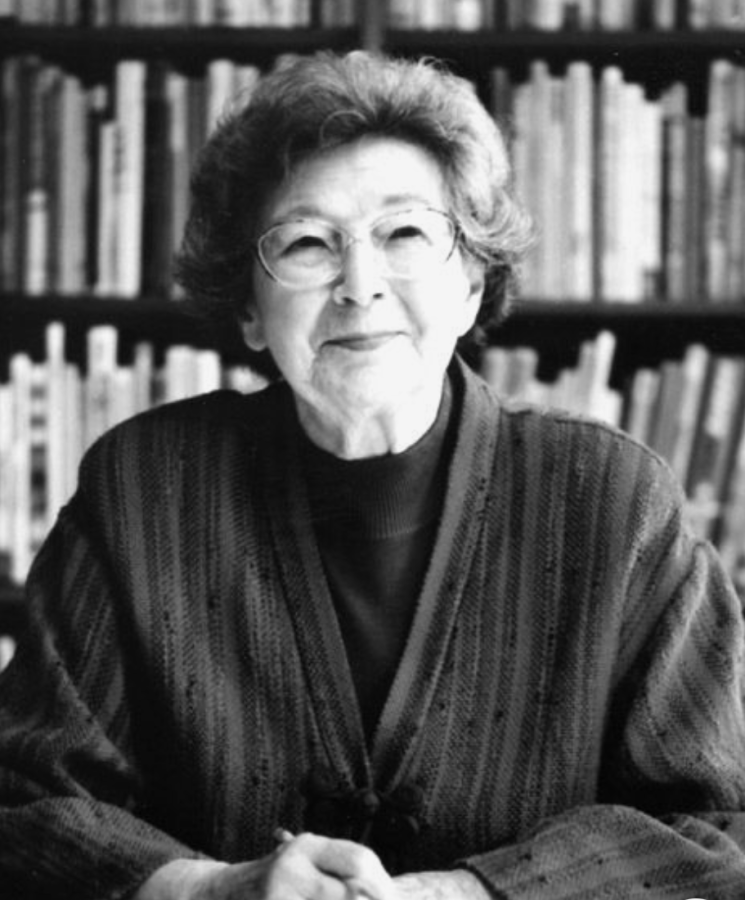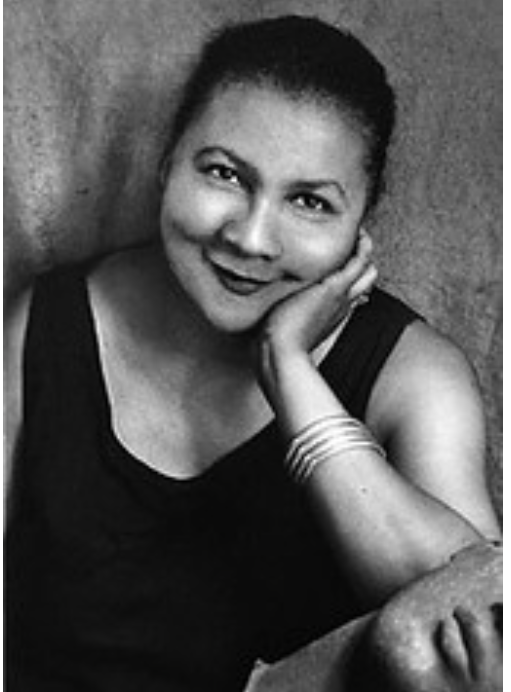3 Lost Icons of 2021
February 15, 2022
2021 endured the loss of several countercultural activists including bell hooks, Beverly Cleary, and Archbishop Desmond Tutu. All three, in their forms of activism, worked tirelessly to overcome obstacles of discrimination, faith, and resilience and made our world a better place. The same issues they pursued and dedicated their lives to solving remain present, although, with their help, the issues are more feasible to a more diverse and accepting collection of leaders and problem solvers.
Black Feminist Icon, bell hooks, dies at 69
Gloria Jean Watkins’, known by her pen name bell hooks, penetrating writings on race and gender pushed feminism beyond its white-collar ideology to embrace the voices of Black women. Grieved by her many fans and supporters, bell died on Wednesday, December 15, in her home in Kentucky at 69 due to renal failure. Ms. Hooks, a world-acclaimed author, professor, and societal critic insisted her name be spelled with all lowercase letters to pay tribute to her great-grandmother with the same name and draw attention to her work and ideals instead of her title.
bell hooks voiced Black womens’ long-held opinions that took a different spin on activist movements in her classrooms, speeches, and on paper in her trademarked free-flowing, jargon-free style. bell’s first book, “Ain’t I a Woman? Black Women and Feminism,” argues that the central premise of feminism to encompass all womens’ fight for equality undermined the unique journeys of Black women. To hooks, this occurred as a result of the sexual oppression of enslaved Black women hundreds of years prior. Ms. hooks’ countercultural opinion gave license to Black Feminists by articulating their private thoughts about the movement. hooks said that feminism should recognize the differences and inequalities of females rather than glossing over the movement’s claimed fundamental principles of inclusion. She later recognized her ideal new form of feminism had been achieved. Ms. Hooks also criticized Black antiracism which, according to her, was rooted in a patriarchal view.
In striving to relive hooks’ ionic representation of what it means to be a woman, inaugural poet Amanda Gorman captions a picture on her Instagram of hooks’ shadowed stare, “Wasn’t ready for this today—today we lost a titan, an icon. In college, no matter the class, I’d try as much as possible to reference bell hooks in my papers and meet with Sociology professors to try to get them to include them in our curriculum. She was a writer who made me feel seen down to my bones. When I say rest in power, it’s with the knowledge of all the power she’s given to the rest of us. Keep empowering, empress. ???” Female education activist, Malala, comments three hearts on the post following the lost but never forgotten Black feminist.
Author Beverly Cleary passes March 25, 2021
A favorite childhood author, Beverly Cleary, died in 2021 and left a legacy of beloved fiction amongst her young and old fans. Beverly dedicated her life to fiction writing after being put on academic probation in the first grade because she did not want to read the dull assigned books about rule-following children. She revolted against children’s literature again after college when she became a children’s librarian. She found many children who could not relate to the books in their level about generic adventures and far-off, magical lands fully stacked on the shelves. Believed that reading built the foundation for not only education but a fulfilling life for children; thus, she became a children’s author herself. Some of her most notable books include Romona and Beezus, Henry Huggins, Socks, Ralph S. Mouse, Ribsy, and Dear Mr. Henshaw.
Like many little kids, I loved reading the stories of mischievous Ramona Quimby growing up. Somehow her energetic, loud, and messy life made my imperfect life and feelings seem more normal. These series helped form my love of books at a young age. That’s just what Beverly Cleary set out to do: make books exciting and relatable for children. Interestingly, Cleary’s stories originated from her own experiences of not fitting in and feelings of rambunctious restlessness. She was the only child of a strict and depressed mother who made her feel as though she was always misbehaving. Cleary will confess that she was indeed a troublemaker, tripping chickens with a stick for entertainment, cutting her hair off, endless energy that drove everyone around her crazy. Thus, Cleary engendered the restless, rebellious, and always entertaining Ramona alive on paper for all energetic kids to enjoy and relate to, growing child readers nationwide.
Cleary also portrayed real struggles kids go through in her stories, such as divorce, family financial problems disguised in fiction. Such realism and the topic life brought to children’s stories was hardly ever done before and further propelled Cleary’s career.
Moreover, Beverly Cleary’s adventurous childhood fiction defied gender roles for young kids in a subtle yet powerful way. She showed that girls can never be “too much” or “too messy” and that energy and mess, when harnessed and controlled correctly, is indeed what makes a girl more than enough. She also instilled that boys don’t always have to put on a strong, masculine persona, and can instead spearhead adventures or even befriend dogs like Henry Higgins. Cleary’s uncategorized characters illustrated that staying true to yourself and following your heart will lead to a true “happily ever after”.
Sophomore Liz Schembri comments, “I loved Romona and Beezus growing up. Their excitement and adventurous stories made me want to read.”
Religious and peace pioneer, Archbishop Desmond Tutu, dies in December 2021
Desmond Tutu, a South African bishop, and theologian died in December 2021. An advocate for equal rights, Tutu was beyond instrumental in getting the South African government to end apartheid, the country’s policy for racial segregation, earning him the nicknames, “peace campaigner” and “world’s moral conscience”. His work as a powerful force for nonviolence in the anti-apartheid movement earned the Nobel Peace Prize in 1984. A famous quote of his is, “if you’re neutral in situations of injustice, you’re on the side of the oppressor.”
In the years following the end of the apartheid, in the early 1990s, Tutu became the chair of South Africa’s Truth and Reconciliation Commission, which investigated atrocities under apartheid and granted amnesty to some perpetrators. At that time, Nelson Mandela became president of South Africa, after spending years in prison.
Tutu published several books during his life and in God Has a Dream: A Vision of Hope for Our Time, he wrote: “It is through weakness and vulnerability that most of us learn empathy and compassion and discover our soul.” He spoke on the power of forgiveness as not just a selfless act, but it can also serve self-interest stemming from reliance and retaining one’s humanity in the face of oppression.
Tutu’s life was, “entirely dedicated to serving his brothers and sisters for the greater common good. He was a true humanitarian,” said the Dalai Lama, Tibet’s exiled spiritual leader and Tutu’s friend.
True to his nature of accepting all and everyone, Tutu was also a strong and outspoken supporter of LGBTQ rights. “I would not worship a God who is homophobic,” he said in 2013, launching a campaign for LGBTQ rights in Cape Town. “I would refuse to go to a homophobic heaven. No, I would say, ‘Sorry, I would much rather go to the other place.’”
One of my favorite books I read this year was The Book of Joy, which covers a five-day informal conversation between Archbishop Desmond Tutu and his friend The Dali Lama about the secret to finding joy among life’s hardships. The book appeared on a recommendations list I like to follow. Their tales of suffering – the Dalai Lama’s flight from Tibet as well as Archbishop Tutu’s work under South Africa’s apartheid government and restrictions – support their beliefs of generosity, compassion, happiness, and joy. Reading about the way each leader viewed the atrocities that they have been through and the people that have caused the atrocities through loving eyes and their calm outlook on life in general instilled a reflective outlook on me which I didn’t expect and even knew I needed as I read.
My takeaway from the book is that only I can choose to focus on what positives can come from negative experiences in the world, instead of feeling lasting pain and anguish.
Archbishop quotes, “it is how we face all of the things that seem to be negatives in our lives that determines the kind of person we become”. Even his simple teaching of when you’re in the hospital and pain, becoming less self-centered, and focusing on the gentleness of the nurse caring for you or the skill of the surgeon operating will slightly disguise pain is a method I hope to incorporate in troubled times.
Both spiritual leaders have had their fair share of pain. The Dali Lama was exiled from Tibet and Desmond Tutus fight against apartheid. The way they think and approach life, pain, suffering anguish is beyond admirable and something I would love to try to replicate in my own life. It taught me a way to get in touch with my humanity and not react to life’s events but seek to understand compassion, gratitude, understanding, and set a healthy spiritual mindset above the noise.
The other teaching I liked from his book was that the different types of happiness people unknowingly seek to dictate the likelihood of true lasting happiness. For example, looking for happiness that comes from sensory things such as music or material things will come and go depending on your surroundings. However, experiencing happiness in the deeper mind such as love and compassion and generosity is lasting and brings a sense of fulfillment.
Desmond Tutu Quotes:
“The Dead Sea in the Middle East receives fresh water, but it has no outlet, so it doesn’t pass the water out. It receives beautiful water from the rivers, and the water goes dank. I mean, it just goes bad. And that’s why it is the Dead Sea. It receives and does not give. In the end, generosity is the best way of becoming more, more, and more joyful,” reads one of Tutu’s quotes in ‘The Book of Joy: Lasting Happiness in a Changing World‘. Through the quote, he is conveying how generosity is the best way to become joyful.
Sophomore Maeve Moynihan comments, “I haven’t read The Book of Joy yet, but it sounds cool and interesting!”


































